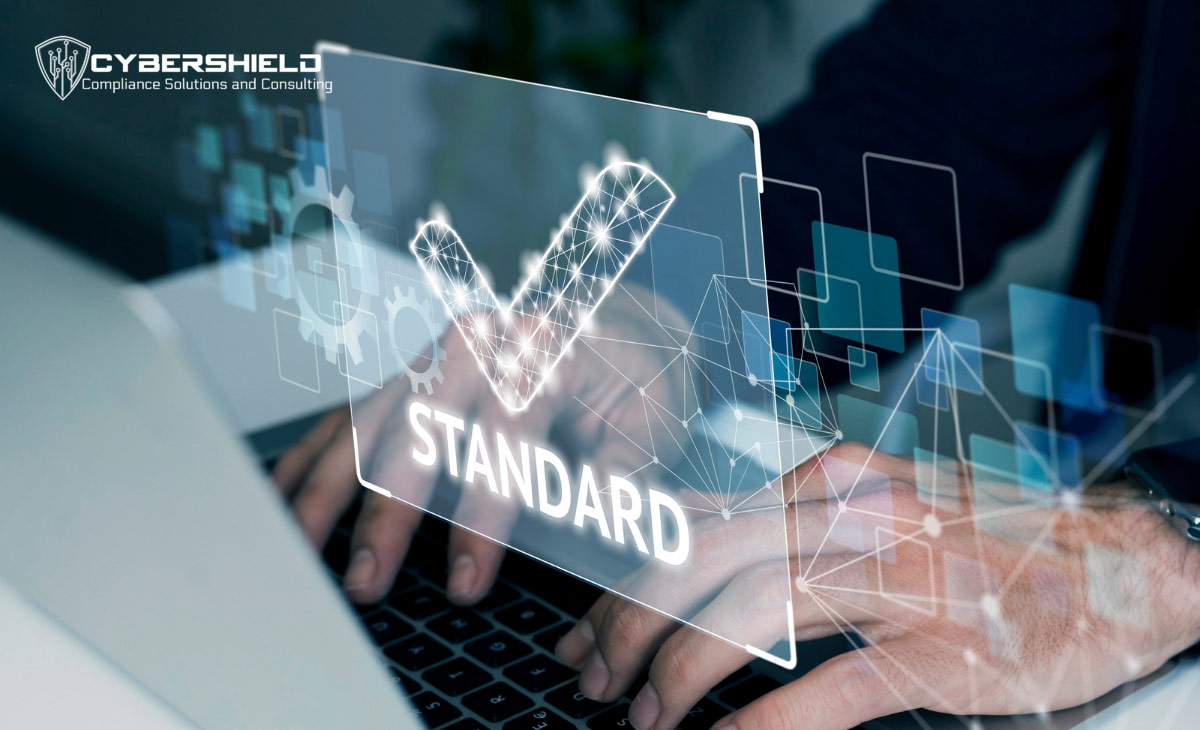10 Compliance Standards That Are Must-Haves
Data is one of the most valuable assets a company can possess. However, with the rising frequency of data breaches and emerging cyber threats, businesses can no longer afford to treat cybersecurity as an afterthought.
Over 60% of SMBs experience at least one data breach every year, and the financial and reputational damage can be devastating. In today’s threat landscape, cybersecurity compliance is a business-critical requirement. Regulatory frameworks are designed to safeguard sensitive business data, reduce cyber risks, and build long-term trust.
Organizations of all sizes, particularly SMBs, are under pressure to execute tough compliance regulatory standards that protect sensitive data, reduce cyber security risks and controls, and instill trust in clients, partners, and regulators.
The challenge is to manage the complex web of regulations and norms. This is when cyber compliance solutions come into play.
What is Cyber Compliance?
Cyber compliance is the adherence to rules, regulations, and standards intended to protect sensitive data, secure systems, and guarantee ethical digital behavior. It includes not just technical measures, but also organizational policies, procedures, and personnel training.
For small and medium-sized businesses, navigating compliance may be intimidating. This is where SMB data protection solutions and cybersecurity compliance standards play a major role. Using the best cybersecurity compliance solutions for SMBs guarantees that businesses stay ahead of regulatory obligations and implement cybersecurity with the CIS Controls in accordance with the CIS Controls and other worldwide regulatory standards.
1) General Data Protection Regulation (GDPR)
The GDPR is widely recognized as one of the most stringent and important privacy legislation in the world.
Businesses must comply by ensuring that data is treated legitimately, respecting individuals’ rights to view, erase, or transfer their data, and reporting breaches within 72 hours of finding. Even organizations outside the EU must comply if they process EU individuals’ data, making GDPR one of the world’s most comprehensive rules.
2) Health Insurance Portability and Accountability Act (HIPAA)
HIPAA is the foundation for healthcare data protection in the United States. It was created to preserve protected health information (PHI) and guarantee that patient privacy is never jeopardized.
Compliance entails implementing administrative, physical, and technical protections to protect PHI, educating staff to identify and mitigate insider threats, and adhering to stringent breach reporting and regulatory standards.
Healthcare providers, insurance organizations, and even third-party partners that handle PHI must comply with HIPAA in order to avoid costly penalties and preserve patient confidence.
3) Payment Card Industry Data Security Standard (PCI DSS)
When a company handles or keeps payment card information, PCI DSS compliance is required.
This worldwide standard focuses on preventing cardholder data theft and fraud. It requires enterprises to put in place secure networks and firewalls, encrypt sensitive data during transmission, and test for vulnerabilities on a regular basis.
Without PCI DSS compliance, businesses risk not only paying large fines, but also losing the ability to handle credit card payments.
4) ISO/IEC 27001: Information Security Management
The ISO/IEC 27001 standard offers an internationally recognized framework for building and maintaining an Information Security Management System (ISMS).
It focuses on a risk-based strategy, requiring firms to implement effective cyber security risks and controls, and continually monitor and improve security processes.
Earning ISO 27001 certification is a symbol of confidence that shows stakeholders that a business is dedicated to preserving its information assets using internationally acknowledged best practices.
5) SOC 2: Service Organization Control
SOC 2 compliance is a key difference for service providers, particularly SaaS organizations. SOC 2 assesses an organization’s controls using five trust principles: security, availability, processing integrity, confidentiality, and privacy.
To achieve compliance, businesses must develop demanding cyber compliance solutions that prove their capacity to protect critical consumer information.
6) Sarbanes-Oxley Act (SOX)
The Sarbanes-Oxley Act (SOX) covers all publicly listed firms in the United States.
It requires firms to have stringent internal controls to protect financial data from alteration or intrusion.
IT and compliance teams must develop secure systems, perform frequent audits, and ensure accountability throughout the financial reporting process.
7) Federal Risk and Authorization Management Program (FedRAMP)

FedRAMP compliance is required for cloud service companies doing business with the United States federal government. This initiative simplifies security evaluations and authorizations, ensuring that providers adhere to common data protection and risk management standards.
FedRAMP emphasizes compliance with NIST cybersecurity controls, thorough third-party audits, and ongoing reporting on compliance.
8) California Consumer Privacy Act (CCPA)
The California Consumer Privacy Act, sometimes known as the “California GDPR,” gives California individuals more choice over how their personal information is collected, kept, and shared.
While the legislation is exclusive to California, its impact has spread nationwide, affecting privacy practices across businesses in the United States.
9) NIST Cybersecurity Framework (CSF)
The NIST Cybersecurity Framework is extensively used because of its realistic, adaptive approach to risk management.
The framework complements the CIS Controls, making it especially useful for enterprises looking for systematic, scalable cyber compliance solutions..
10. COBIT (Control Objectives for Information and Related Technologies)
COBIT is a governance and management framework that bridges the gap between IT operations and organizational objectives. It stresses responsibility, risk management, and regulatory compliance while providing a disciplined method for managing IT systems.
Adhering to regulatory standards is more than just checking boxes; it’s about developing resilience and gaining consumer trust. By implementing cyber compliance solutions and collaborating with internationally recognized enterprises, cyber security risks and controls can be successfully mitigated.
Adopting the best cybersecurity compliance solutions for SMBs could help them compete with bigger organizations and develop a security-first culture. Connect with Cybershield CSC to learn more and begin your compliance journey.

